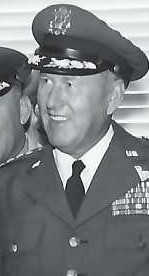Commentary
The late Rush Limbaugh frequently devoted time on his radio show to expound on words having meaning, often quoting former President Reagan, who had a way with words.
I thought of Rush when I heard President Biden’s testy response to a remark by CBS’s Christina Ruffini during his press briefing in Brussels Thursday. “Sir, deterrence doesn’t work,” she said, “What makes you think Vladimir Putin will alter course based on the action you’ve taken today?”
“Let’s get something straight,” Biden shot back, accusing her of “playing a game with me.”
“If you’ve covered me from the beginning,” he continued, “I did not say that in fact the sanctions would deter him. Sanctions never deter. You keep talking about that. Sanctions never deter.”
All the President’s People Think Differently
On December 1, 2021, Secretary of State Antony Blinken, during a meeting of NATO ministers in Latvia, said, “Diplomacy is the only responsible way to resolve this potential crisis, but more than diplomacy will be needed for deterrence.
The editorial board of the Wall Street Journal in, “Deterring Russia in Ukraine,” said, it was “as clear a statement of military deterrenceas the alliance has been willing to make.”
Appearing with Press Secretary Jen Psaki during her December 7, 2021 press briefing, Biden’s National Security Advisor Jake Sullivan said, “The United States is going to take every action that we can take, from the point of view of both deterrence and diplomacy … to try to avert the invasion and deter the invasion into Ukraine.”
On January 21, 2022, a member of the press questioned Psaki about the president’s reference regarding deterrence as “stupid.” In response she said, “President Joe Biden doesn’t dismiss deterrence against Russia.”
Appearing on the Sunday news shows of CBS and NBC, Secretary of State Blinken defended the administration’s decision to delay imposing sanctions on Russia because “the purpose of those sanctions is to deter Russian aggression.
“If they were triggered before the invasion, the U.S. would lose the deterrent effect.”
In a Tweet @SecBlinken on January 23, 2022, he wrote: “As I said on Meet the Press with Chuck Todd, even as we’re building up deterrence and defense for Ukraine, we are also engaged in diplomacy …”
Appearing at the Munich Security Conference on February 21, 2022, Vice President Harris called the sanctions “some of the greatest sanctions, if not the strongest” that the U.S. has ever issued.
Asked if she felt the looming threat of sanctions would deter Putin, she responded, “Absolutely … we strongly believe … and remember also that the sanctions are a product not only of our perspective among our allies. And the allied relationship is such that we have agreed that the deterrence effect of these sanctions is still a meaningful one … the deterrence effect, we believe, has merit.”
Biden’s choice of words in response to how the U.S. would respond if Russia were to use chemical weapons against Ukraine were also confusing. “It would trigger a response in kind,” he said. Meaning Ukraine would then use chemical weapons against Russians?
PONDER THIS – Regarding the war in Ukraine, there are two words that are not in Biden’s vocabulary – “winning” and “victory. It comes from his lack of leadership.
When “Deterrence” Had Meaning
In the 1960s, I had the distinct pride in serving in the Strategic Air Command, a unit of the U.S. Air Force with the primary mission in peacetime of “deterrence,” the maintenance of an honorable peace by discouraging aggression.
With bombers and tankers at some 60 bases around the world, and ICBM silos strategically located in the U.S., SAC represented a deterrent force that kept Russia at bay, especially during the Cuban Missile Crisis.
The existence of SAC was a force that discouraged an enemy from taking action against the U.S. for fear of the consequences.
Formed under the direction of Gen. George Kenny in 1946, command later went to Gen. Curtis E. LeMay and Gen. Thomas S. Power. With the fall of the Soviet Union in 1991, the fear of nuclear war and the need for nuclear deterrent capabilities came to an end.
Words, and the Court Nominee
Supreme Court nominee Ketanji Brown Jackson seems to have difficulty with words. “Can you provide a definition for the word ‘woman’?” she was asked. To which she responded, “I’m not a biologist.”
How difficult would it have been for her to say, perhaps with a bit of levity, ’there are two human species – man and woman – and I am a woman.’
Sen. John Kennedy’s question, “When does life begin, in your opinion?” seeking her simple belief, but she again evaded the question.
He then asked her, “When does equal protection under the laws attach to a human being?” “Well Senator, I believe the Supreme Court … actually, I actually don’t know the answer to that question, I’m sorry.”
Interestingly, in 38 states, a fetus that dies in the homicide of a woman is also a victim of homicide. Equal protection?
Now, more than ever … may God continue to bless the United State of America.






